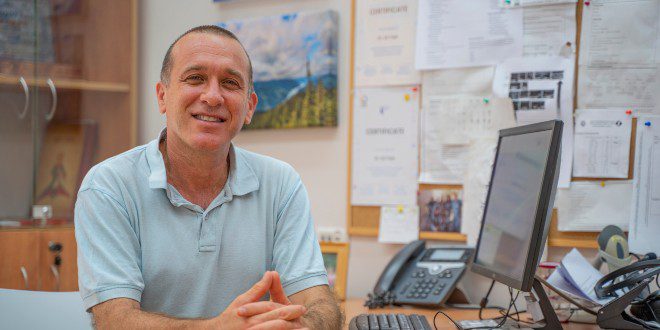People looked at their waistlines and bathroom scales since the COVID-19 pandemic broke out, so it will not come as a surprise to anyone that they exercised less (or not at all), ate more junk food and gained weight.
But while this phenomenon has been documented, very few studies have examined its effect on metabolism. Now, researchers at Ben-Gurion University of the Negev (BGU), National Institute for Biotechnology in the Negev and Soroka University Medical Center – all in Beersheba –have simulated in mice a sharp decline in physical activity by removing a voluntary running wheel and assessed how diet composition affects the response.
They found that while less energy was spent by the mice, the mice still ate similar amounts of food as when the running wheel was present, and this resulted in weight gain. In addition, diet composition determined changes in the oxidation rates of fat or carbohydrates (sugars) – the two major energy sources of our body – in response to the decline in physical activity.
Their findings were just published under the title “Adaptation of fuel selection to acute decrease in voluntary energy expenditure is governed by dietary macronutrient composition in mice” in the peer-reviewed Physiological Reports, a journal of the American Physiological Society.
The mice were divided into two groups. One was fed a low-fat (high- carbohydrate) diet and the other a high-fat diet for six days. Mice were placed in metabolic cages that measure their activity, food consumption, the amount of oxygen they consume and carbon dioxide (CO2) they release (from which carbohydrate and fat oxidation can be assessed). During the first three days, mice had access to a voluntary running wheel. The mice in both groups used it extensively during their active (nighttime) cycle. After three days, the running wheel was removed. Over those next three days, their exercising on the wheel dropped by 50%.
Prof. Assaf Rudich, Dr. Uri Yoel and their group members, Dr. Yulia Haim, Dr. Nikhil S. Bhandarkar and Rotem Lahav discovered that the diet determined how much fat or carbohydrates were burned: With the running wheel in the cage, high-fat-diet mice burned mainly fat throughout the day, and carbohydrate burning decreased even more when their physical activity dropped. The reverse was true for the low-fat (high-carbohydrate) mice that consumed more carbohydrates during their waking hours and decreased burning fat even more when the running wheel was removed from the cage.
“Our findings show that there are immediate effects of stopping exercise. While the comparison to human beings forced to become more sedentary during lockdowns requires confirmation in human clinical trials, our study provides a possible explanation as to how lockdowns may have induced weight gain: While the decline in spending energy is rapid, matching the lower energetic needs with lower food consumption takes time, resulting in a positive energy balance,” explained Rudich.
Clinical endocrinologist Yoel added that “dietary composition determined the adaptation to less physical activity – the “rarer” energy source in the diet was the one that the mice chose to burn less of once the energy demand decreased. If this is also true in humans, this could have consequences on metabolism that need to be taken into consideration, particularly in persons with impaired metabolic regulation such as diabetes.”
The shortcode is missing a valid Donation Form ID attribute.




